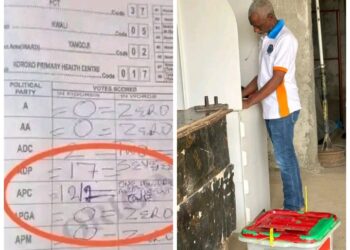The Federal Government has restated that the “no work, no pay” rule remains in force for university lecturers who embark on strike, warning that it will uphold the law if academic activities are disrupted across campuses.
The statement was contained in a press release from the Federal Ministry of Education, signed by the Director of Press and Public Relations, Boriowo Folasade, and issued in Abuja on October 12, 2025.
Education Minister, Dr. Maruf Tunji Alausa, and Minister of State for Education, Prof. Suwaiba Sa’id Ahmed, reaffirmed the government’s readiness to sustain dialogue with the Academic Staff Union of Universities (ASUU) to settle lingering matters affecting the nation’s public universities.
They maintained that the government had shown “sincerity, patience, and goodwill” in its engagement with the union, noting that almost all the issues raised had been resolved. These include the introduction of a higher teaching allowance and an upward review of academic staff welfare packages. Remaining matters, the Ministers explained, fall under the jurisdiction of university governing councils, which have now been reconstituted to address internal concerns.
The Ministers expressed disappointment that despite meeting agreed deadlines and presenting the government’s position, ASUU opted for industrial action rather than returning to the negotiation table. They described the move as unfair to students and contrary to the spirit of cooperation required to sustain progress in the education sector.
Under President Bola Ahmed Tinubu’s Renewed Hope Agenda, they said, the government continues to prioritise staff welfare and academic stability, while dialogue remains the preferred approach to resolving disagreements.
“The ‘no work, no pay’ policy remains an extant labour law of the Federal Republic of Nigeria, and government will be guided by this law should academic activities be disrupted in the nation’s universities,” the statement warned. It added that while the administration would continue to show goodwill, it would also “uphold fairness and accountability in the use of public resources.”
The statement reassured students, parents, and the general public of government’s commitment to sustaining peace in tertiary institutions and appealed to all academic unions to embrace dialogue over confrontation.
The Ministers restated that the education reform agenda aims to strengthen university governance, enhance teaching and research standards, and promote institutional autonomy within an atmosphere of mutual respect and productivity.
They urged ASUU to reconsider its stance and return to dialogue “in the best interest of students and the future of Nigeria’s education system.”






I used to be suggested this website by means of my cousin. I’m not positive whether or
not this post is written by him as nobody else know such unique about my difficulty.
You’re amazing! Thanks!